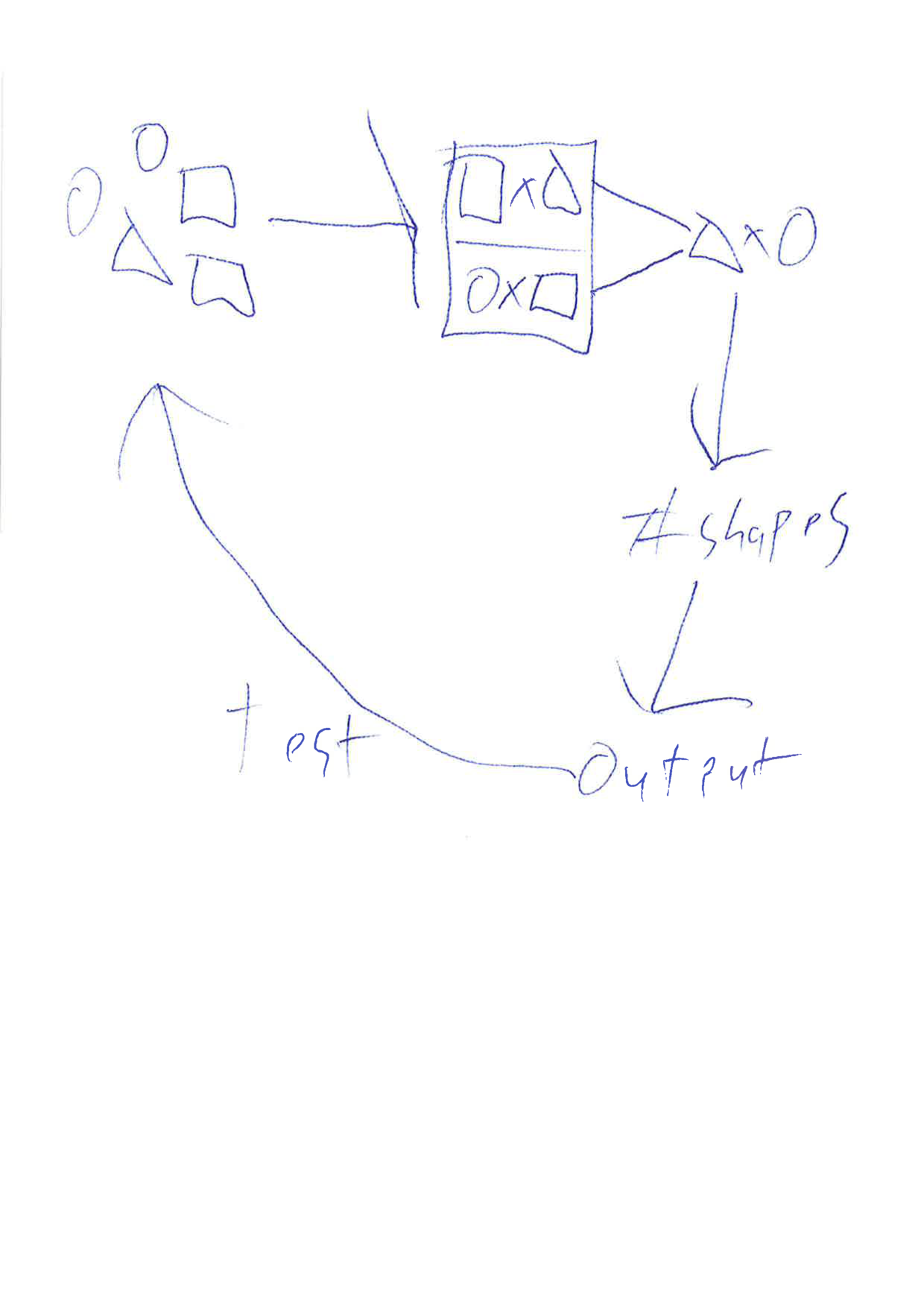An algorithm, drawn by a 30-year-old male PhD student of biology in the US.

Thanks. I have one other drawing. That's it. Which is how does an algorithm work? I'm keeping this on in case you want to narrate your drawing. Sure. Jeez. What type of algorithm? Becaus you have algorithms to solve things like Rubik's cubes, to me are one of the classic examples of very simple algorithms. Then you have more complex things like machine learning where you chuck everything at the wall and it black boxes it and you overfit data and do that. So pictorially representing an algorithm. You have circles, boxes, triangles of different data sets and you put it into something. Then it determines boxes times triangles and circles times squares. That gets factored more into a triangle times circle, which factors in to another thing, which then goes into an output and then gets tested again against a data set of some sort. Okay, cool. What does this say? Shapes. Numbered shapes. Oh, okay. Got it. Thanks. How do you know about algorithms? Being in science a little bit. One of my peers is a physicist basically and he talks a lot about game theory. One of his projects that he loves talking about is game theory of cooperation versus competition of different things and I'm able to pick up the basics of it, but not the specifics of it. I've also watched different YouTube videos of varying degree of this is how a machine algorithm looks at things and determines whatever. Also being in science in general and biophysics adjacent if nothing else, trying to understand buzzwords of the way people describe their data and they describe their outputs and whatnot. So I built a general concept of what it is, but the specific coding that would go involved or the specific scripts, I have relatively no idea. Is that why you watch videos when you said about algorithms? Yeah, part of it's general interest. Part of it's to be more informed about the digital life we have. Part of it's general curiosity. Okay cool.